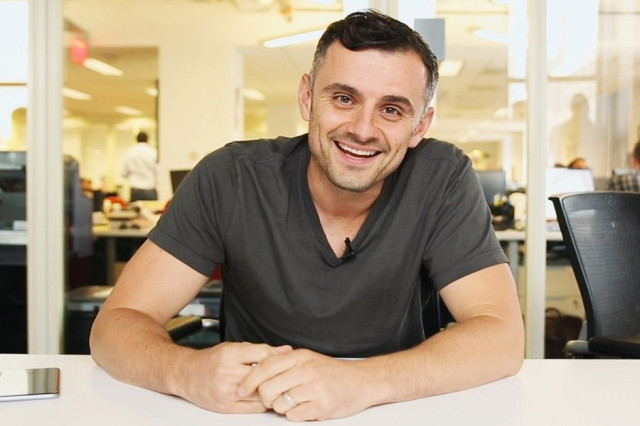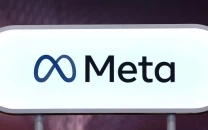Advice from an entrepreneur who took his family business revenue from $3 million to $60 million in just five years
Entrepreneurial giant Gary Vaynerchuk talks about the most important aspect of being an entrepreneur

Entrepreneurial giant Gary Vaynerchuk talks about the most important aspect of being an entrepreneur. Photo: Gary Vaynerchuk
He is also a prolific angel investor investing in companies like Facebook, Twitter, Tumblr, and Uber. He is a New York Times best-selling author of four books, popular podcaster, inspirational public speaker, and all-around entrepreneurial giant.
I’m a huge fan of Gary’s. If you know him or follow any of the content that he pumps out on a daily basis, you will know that he’s a very busy guy. He talks about the most important aspect of being an entrepreneur. He also talks about where he thinks attention will be in 2017. Let’s jump right in. Get ready for some gold.
So why don’t you just run us real quick through your story?
“I was born in the Soviet Union, so obviously a different version of communism especially in the seventies. […] We got out there luckily in the late seventies when I was a kid. We came to America. We were super poor. […] My dad used to drive from Queens to New Jersey to get paid two bucks an hour to be a stock boy in a liquor store. I was an entrepreneur from the get-go. You know lemonade stands, baseball cards, that kind of stuff. When I was 10, 11, 12, I was making hundreds of dollars, if not thousands of dollars, a weekend selling baseball cards in the malls in New Jersey. So I kind of knew I had it from a very, very, very young age.”
How this successful Pakistani entrepreneur is investing his millions into startups
“My dad dragged me to the liquor store when I was 14 that he now owned. I fell in love with wine collecting and the culture of wine. I thought I could build a big business in 1996. At 21 years old, I launched one of the first ecommerce wine businesses in America. From 1998 to 2003, in that five-year window, I grew my dad’s business from a three to a 60 million dollar business using modern digital tactics, email marketing, ecommerce, Google AdWords, and blogger outreach. YouTube came along and I started a wine show. That was right around the time Twitter and Facebook were doing their thing as well. I used those platforms to build my brand and became an investor in Facebook, Twitter, and Tumblr.”
“In my entire high school career, I got four A’s, all in gym. I was far from a scholar. I think that it was tough. I went from being my own boss making US$800 a weekend, US$1,400 a weekend, to making US$30 a weekend, bagging ice for 15 hours a day in a liquor store. At the same token, I just kind of wanted to support my family’s thing, and was willing to pay my dues, and was thankful for my parents for coming to this country. Even at that age, I knew what they did was special and wanted to support our thing.”
“When I realized that I didn’t want to sell beer and liquor, but realized there was a culture around wine and wine collecting, I saw the storytelling, I saw the creativity. I saw the marketing and I really ran with that.”
So you go from there and now you’re an investor and you’re running a multi-million dollar digital marketing agency. How do you manage?
“By realizing there’s no option, right? I’ve made my bed, now I have to sleep in it.”
Despite challenges, entrepreneurial landscape flourishing in Pakistan
“You know what the real answer is? Because I want to. How do I stay current? Because I want to. Like when you want to do anything, you figure it out. You’re giving up something else because I’m not watching this, or playing that, or meeting this, or doing that. So I do what I want to.”
“I want to watch the New York Jets every weekend, and so I do that. That takes out of family time and it takes out of business time, but that’s my escapism; that’s my release point. I want to see my family more and so now, starting this fall, I’ve cut out Friday nights, which used to be very, very effective for me. It’s a time where I’d get four to six hours of meetings that I couldn’t fit in the rest of the week gone. That will mean less business results because I want to see Meisha, Zander, and Lizzy more. It’s choices, right? How am I current and how am I at the forefront? Because I want to be.”
You are a born entrepreneur. Some people are like that. Can entrepreneurs be made so to speak?
“Not all basketball players are born LeBron, Carmelo, and Durant, right? I definitely believe that I was gifted more on the entrepreneurial upside than most people, no question. I mean, I just don’t know what else to say. […] It’s not ego, it’s 35 years of history. I sold more lemonade than everybody, I made more money on baseball cards than everybody, I built a bigger liquor store than everybody, and I built a personal brand bigger than most. I’ve, in four minutes, built one of the biggest social digital agencies and in the most competitive space. I’ve done it, so yeah I’ve got it.”
“Everybody’s got a cap. I think my cap is multi-billions. I think other people’s caps are several hundreds of thousands. [What’s better?] Making US$187,000 a year as an executive and not being that happy, or making a buck twenty-seven as an entrepreneur and being super happy? That’s an interesting debate. […] What’s the happiness line versus the money line? I think all of us have different lines. I leave lots of money on the table for happiness every day, and other people do as well. So yes, I do not think that all entrepreneurs are built equally.”
There’s a lot of weird stuff going on in the online space. What are you most afraid of right now when you see these guys on Instagram, flashing dollars, and actually making money off of it?
“Yeah. That’s been part of society; selling get-rich-quick schemes all the way down to versions of it that don’t seem as bad but, in essence, use the same core philosophy. [These] have been around from the moment of time.”
“The day of reckoning is when the person that’s making that money lives their lives, and their consciousness or their grandkids call them out and say ‘you weren’t authentic in the way you made your money.'”
Pakistan's youngest social entrepreneur is nine years old
“How you make your money is more important than how much you make and, more importantly, here’s what I know: the day of reckoning for [these entrepreneurs] is happening every day. It’s the way that people view them in the world, and, whether it’s talked about or not, they want to be on that pedestal. They may have the money of that pedestal, but nobody’s going to respect somebody who made a million dollars in a skeezy, kind of low-ball way, the same way they’re going to respect somebody who made a million dollars the right way.”
Why don’t you tell us where you think the attention will be in 2017?
“I think much of the same because I don’t predict. I don’t know. I think Snapchat will continue to do well. I think Instagram will continue to do well. I think Facebook will continue to do well. I think Twitter will continue to struggle. I think that musically, we’ll continue to grow. Obviously, in Asia, it’s different with WeChat […], but I think that in the US market, WeChat has got such scale and, obviously, had different dynamics than a full fledged, Silicon Valley capitalistic system that allowed it to scale and have that kind of monopoly.”
“In the US, you don’t have that scenario. Tomorrow, something may pop up and take the attention. Tumblr and Pinterest aren’t as good as they were three years ago — they used to be top of my tongue; they no longer are. Now Snapchat kind of takes that role. Going way back, Uscream used to have that. Youtube still has it. Then you just never know. Marco Polo is an app that caught my attention, but Yik Yak was important to me for 45 minutes.”
What is the single most important trait to become a successful entrepreneur?
“Self-awareness, above all else. Once you know who you are, if you accept it—which I guess is in itself a definition of self-awareness—you can roll. I wish I was a lot of things. I wish, but I’m not. Because I’m self-aware, that’s the seed that makes everything else. I don’t complain a lot because I’m happy. [I’m happy] because things are going well because I was self-aware and I don’t put myself in a position to not succeed. […] Above all else, self-awareness. You’re allowed to maximize your natural abilities and talents.”
This article originally appeared on Tech in Asia.



















COMMENTS
Comments are moderated and generally will be posted if they are on-topic and not abusive.
For more information, please see our Comments FAQ